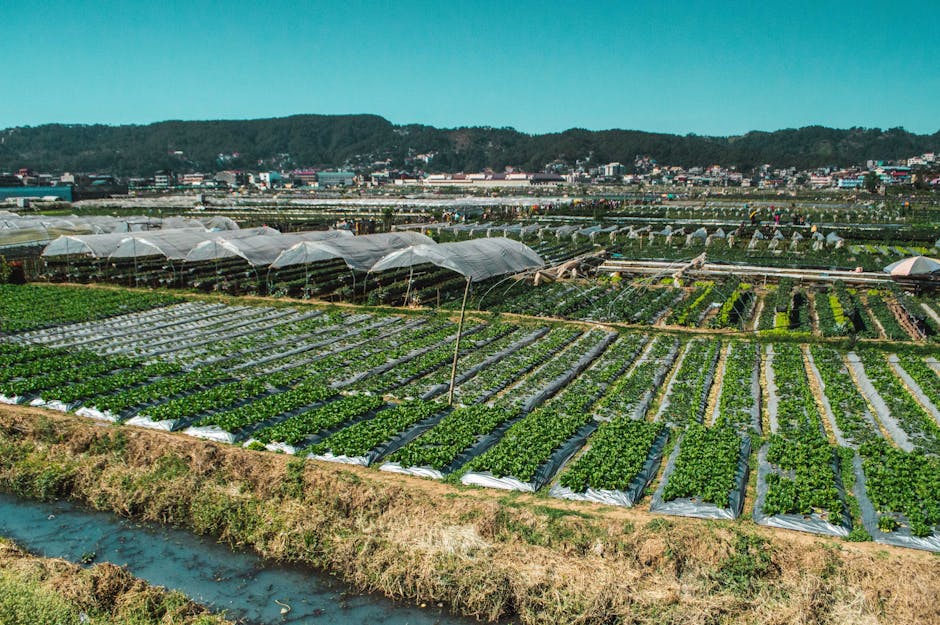The Earth’s climate is undergoing a profound transformation, and the agricultural sector, a cornerstone of global food security, faces a crucial test of adaptability. A key concern is the potential impact of these shifts on crop yields. This examination delves into the intricate ways in which altering weather patterns, rising temperatures, and fluctuating precipitation levels threaten crop productivity, exploring the specific vulnerabilities and potential mitigation strategies.
A critical aspect of this challenge is the complex interplay between various climate factors. A pronounced warming trend is demonstrably impacting crop cycles. Earlier springs and longer growing seasons can present opportunities in some regions, but they often coincide with increased heat stress during critical stages of plant development. This heightened heat can negatively affect photosynthesis, leading to reduced yields and nutritional value in crops. Moreover, prolonged heat spells can exacerbate existing water stress in already arid regions, leading to severe crop failure and impacting food security.
Changes in precipitation patterns also pose significant risks. Increased frequency and intensity of extreme weather events, including droughts and floods, disrupt agricultural practices and damage crops. Droughts can lead to soil desiccation and reduced water availability, causing wilting, stunted growth, and ultimately crop loss. Conversely, floods can damage crops, contaminate soil with pollutants, and disrupt planting and harvesting schedules. These unpredictable weather events significantly affect the reliability of crop yields, undermining the fundamental predictability crucial for farming practices.
Furthermore, the rise in atmospheric carbon dioxide (CO2) levels, a direct consequence of human activities, presents a complex and multifaceted challenge. While higher CO2 levels can theoretically stimulate some plant growth, they also often result in crops with lower nutritional content. This outcome underscores the necessity to examine the intricate mechanisms of plant adaptation in detail. The physiological responses to elevated CO2 can vary significantly between crops, meaning that some species may benefit while others are negatively impacted. Consequently, understanding this variability is essential for developing targeted agricultural practices.
The geographical distribution of crop production is critically vulnerable. Climate change is projected to alter the suitability of specific regions for particular crops. Regions currently suitable for certain crops might become too hot or dry, necessitating shifts in agricultural practices and potentially creating food security challenges. Conversely, areas that are currently unsuitable might become more amenable to crop cultivation, offering new opportunities. This geographic realignment presents challenges in terms of adjusting farming practices and infrastructure, and necessitates proactive adaptation strategies.
The impacts are not uniformly distributed across the globe. Developing countries, often heavily reliant on agriculture for their livelihoods, face a disproportionate burden. Limited resources, infrastructure gaps, and access to technology hinder their capacity to adapt to changing conditions. This inequality raises substantial concerns about global food security and potentially exacerbates existing societal disparities.
Climate change’s influence extends beyond temperature and precipitation. Changing pest and disease patterns are also emerging as a significant concern. Warmer temperatures and altered humidity levels can create ideal conditions for the proliferation of pests and diseases, leading to increased crop damage. The management of these agricultural pests and diseases, already a complex undertaking, becomes even more critical in a dynamic and rapidly changing climate.
Mitigation strategies must address multiple facets of this challenge. Improving water management practices, including efficient irrigation techniques and drought-resistant crops, is crucial to enhance resilience. Developing climate-resilient crop varieties through genetic modification and breeding programs is essential to ensure higher yields in challenging environments. Promoting sustainable agricultural practices, such as reduced tillage and integrated pest management, can contribute to enhancing overall environmental resilience and efficiency.
Furthermore, adaptive agricultural strategies are equally vital. Farmers need access to information about changing conditions, improved forecasting capabilities, and support networks to adapt to unpredictable weather patterns. Diversification of crops and the cultivation of climate-resilient species can also reduce vulnerability. Encouraging a shift towards diversified farming systems that combine various crop types can enhance resilience in the face of future uncertainties.
The implications of climate change on crop production necessitate a multi-faceted approach that transcends individual farming practices. International cooperation and knowledge sharing are essential to facilitate the transfer of advanced technologies and best practices. Investment in research and development, specifically for developing climate-resilient crops and adaptation strategies, is paramount. Policymakers must implement supportive policies that incentivize sustainable agriculture and promote innovation in the agricultural sector. Ultimately, a global commitment to addressing the climate crisis is essential to safeguarding the future of our food supply.
In conclusion, the relationship between climate change and crop production is complex and far-reaching. Altering weather patterns, rising temperatures, and fluctuating precipitation pose significant threats to agricultural output. The challenges extend beyond the realm of individual farms, impacting global food security and potentially exacerbating existing inequalities. A proactive and multi-pronged approach, encompassing improved agricultural practices, technological advancements, and international cooperation, is indispensable for ensuring the future of global food production and mitigating the detrimental impacts of climate change. The future of our food systems rests on our collective ability to adapt and innovate.






